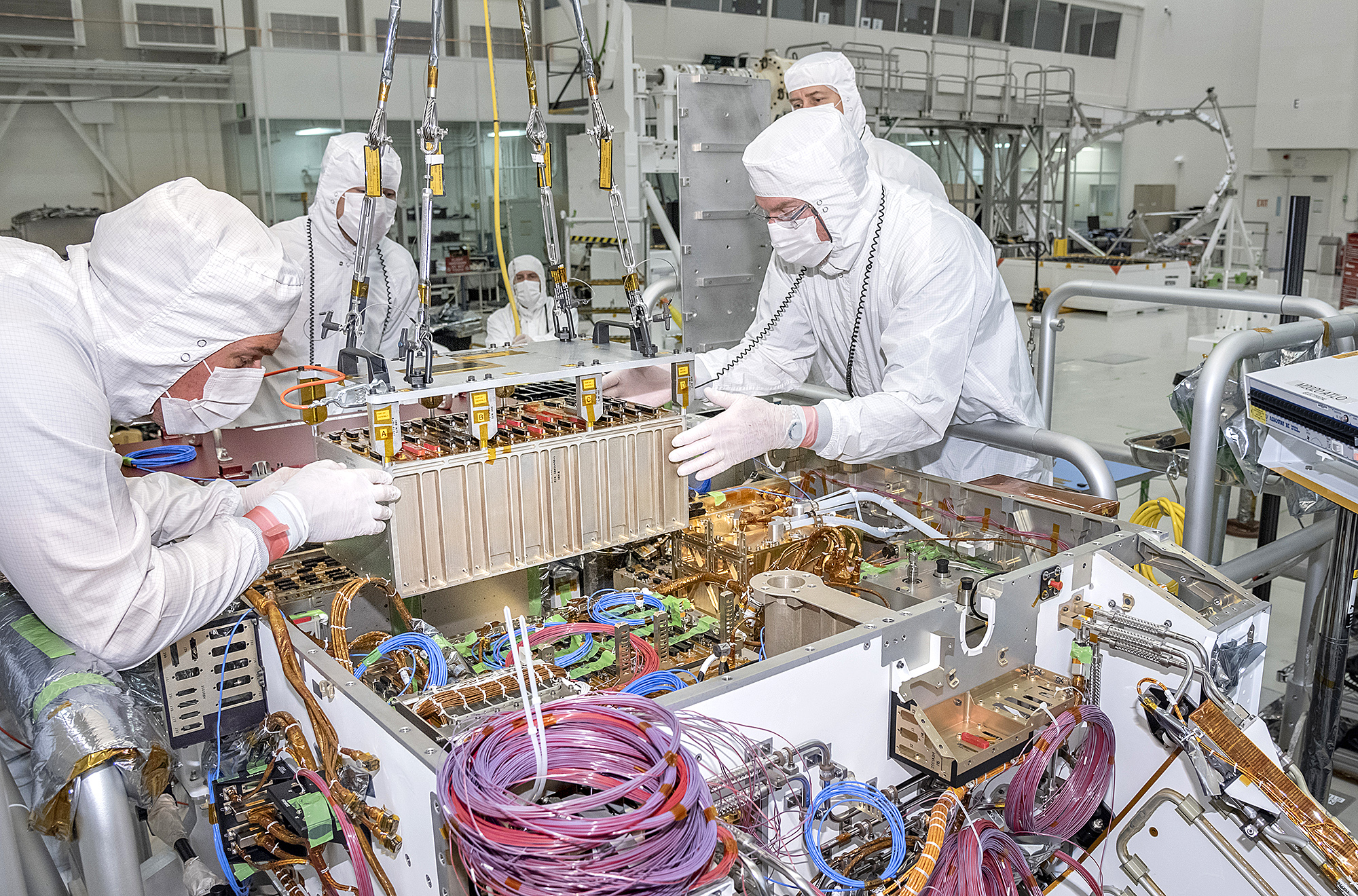Planetary Gatekeeper
Posted on July 2, 2019
The Mars Curiosity rover took this mosaic of photos in January 2018 looking up at Mount Sharp, an area with clay-bearing rocks that could shed additional light on the role of water in creating the landscape. The Mars 2020 mission next year will explore the possibility of life on the planet. (NASA/JPL-CalTech/MSSS)
NASA will launch its Mars 2020 rover mission next year on an effort to answer questions about the potential for life on Earth’s planetary neighbor.
Leading up to that launch, Lisa Pratt ’72 and a team of NASA scientists are working on challenges that few stargazers might consider when thinking of space exploration: How can NASA ensure that the rover will not contaminate potential life on Mars? And how can the space agency analyze samples that will be returned so as to protect Earth from any as-yet-unknown life forms from the Red Planet?

Lisa Pratt ’72
“There will be a restricted sample return from a planetary body that has a history of evidence of liquid water,” said Pratt, who became NASA’s planetary protection officer in 2018. “That makes the possibility of a Martian organism or biological agent something that we have to think about very seriously.”
But don’t get alarmed by a potential Men in Black scenario, with alien beings taking up residence on our home planet.
“The first reassuring thing to keep in mind is that an organism on another planet, especially a planet that is not warm and wet, will have evolved a very different set of adaptations,” Pratt said. “It’s unlikely they would have the ability to be infectious or problematic.
“Another thing from Mars that I find reassuring is that there are large amounts of Martian meteorites that arrive every year on Earth. And if there was or remains an extremely hardy, aggressive life form on Mars, it’s been here. It’s come in over the four and a half billion years that these two planets have been relatively close together.”
Pratt notes that the movies’ it-came-from-outer-space scenarios are not good science, but she has to maintain her guard against cinematic infection.
“One of the big challenges of working in planetary protection at NASA is trying to keep Hollywood from getting in your head and being something that tempts you to be distracted from the current state of scientific knowledge,” she said.
Pratt’s background gives her the ideal perspective to examine the issues presented by real science. At UNC, she majored in botany as an undergraduate and earned a master’s in geology in 1979, with a focus on organic geochemistry. She also holds a master’s in botany from the University of Illinois and a doctorate in geology from Princeton University.

Engineers and technicians at NASA’s Jet Propulsion Laboratory put the rover motor controller assembly into the Mars 2020 rover in April. (Photo by Gregory M. Waigand)
Her research has focused on understanding life’s adaptations to extreme environments on Earth and on working with engineers to solve robotic challenges in the search for evidence of past or present life on Mars and the icy moons of both Jupiter and Saturn. NASA and the National Science Foundation funded Pratt’s research on microbial transformation of simple inorganic molecules for two decades, while she was a professor in the department of earth and atmospheric sciences at Indiana University.
Pratt and her scientific team also are working at the microbial level to minimize the number of spores — hardy, viable resting cells that can be cultured — on the rover before it leaves Earth.
“We spend an enormous amount of human effort and laboratory expense to monitor, daily and weekly, the spore counts on the Mars 2020 spacecraft,” she said. “We are constantly recleaning all the surfaces, all the instruments, to minimize the bio burden that we carry with us when we’ll launch the spacecraft.”
While Pratt is focused on the Mars mission, she’s also interested in the larger implications of space exploration. She and her NASA colleagues always have in the back of their minds one pressing question: Are we alone?
“My personal opinion is that I find it highly unlikely that we are the only form of life. For me, the bigger question is what is the possibility of equally advanced life, life that developed the technological capability to become space faring or to communicate beyond its own solar system,” she said.
“And even there, I tend to come down on the side that we’re not the only ones out there.”
— Robert Bradford
Thanks for reading the Carolina Alumni Review
Carolina Alumni members, sign in to continue reading.
Not yet a member? Become one today.
